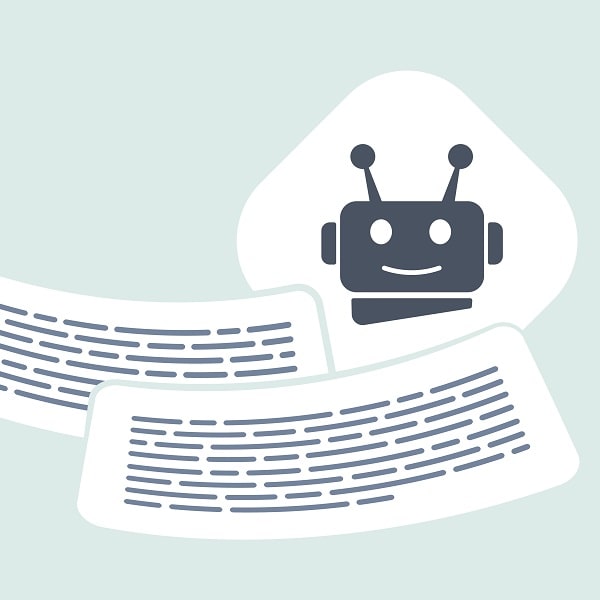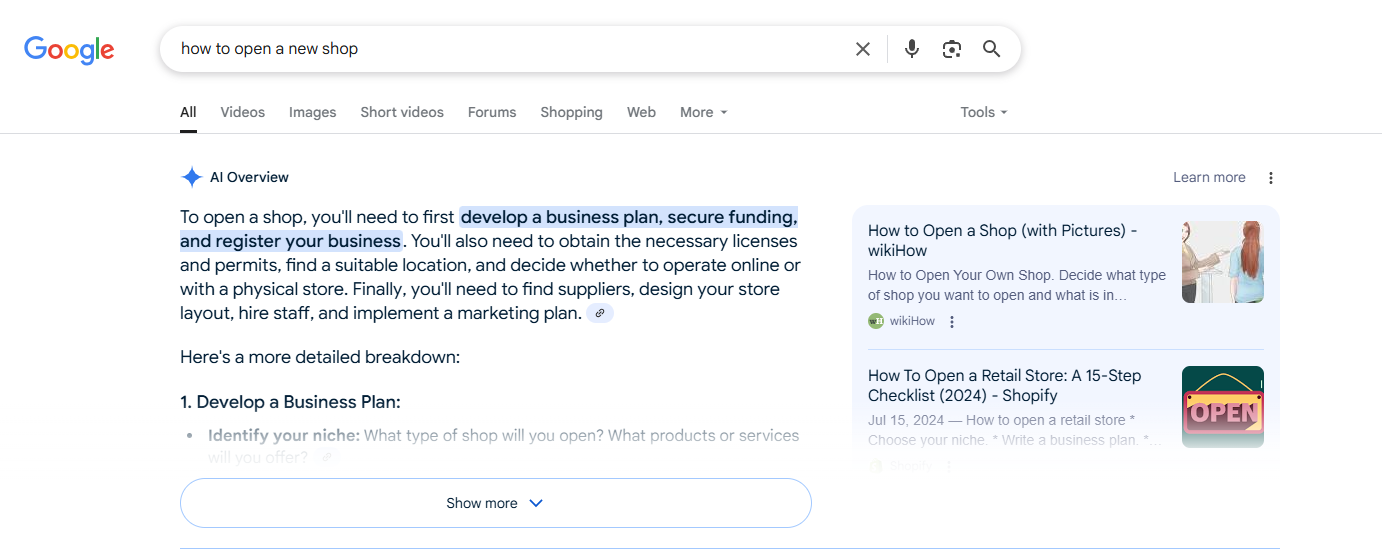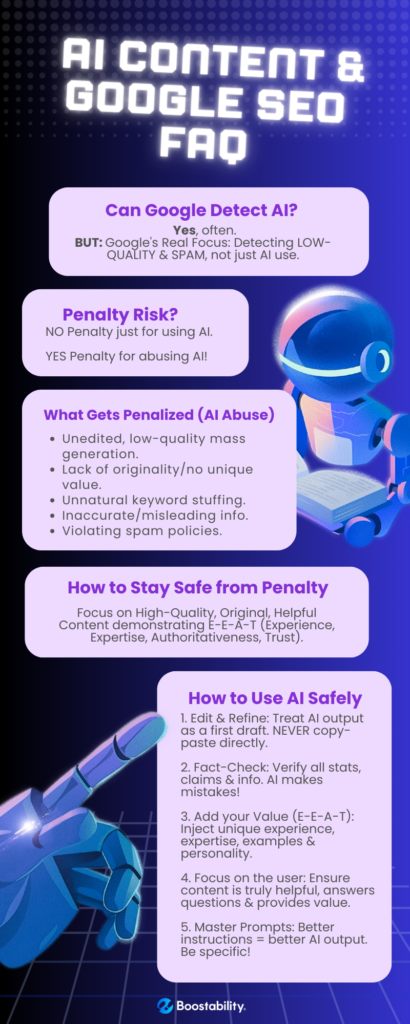Can Google Detect AI Content? Tips to Avoid Penalization

As a content creator or marketer navigating the digital world, you’ve likely bumped into the big question: Can Google tell if I’m using AI to write my content? And more importantly, will it care? You’re definitely not alone in wondering this. With powerful AI writing assistants like ChatGPT, Jasper, and Claude becoming commonplace, it’s crucial to understand how search giants like Google view this AI-generated text.
It’s no longer a niche technology; recent studies show adoption is exploding. For instance, a March 2025 survey found that over half (52%) of US adults now use large language models like ChatGPT (Elon University), making it one of the fastest-adopted technologies ever. Furthermore, organizational adoption of generative AI has surged, with surveys indicating around 65-72% of companies regularly using it in early 2025 (McKinsey, Elfsight). Given this widespread use, understanding the SEO implications is vital.
So, how does AI-generated content fit into Google’s goal of serving users the best results? Can you use these tools to boost your workflow without getting slapped with a penalty?
Explore what AI content actually is, how Google approaches it, whether it’s detectable, and crucially, how you can leverage AI effectively (and ethically) to enhance your content strategy and climb those search rankings.
What Exactly Is AI Content?
Simply put, AI content is any text, image, or other media created or significantly assisted by artificial intelligence tools. These tools use complex algorithms and machine learning, trained on massive datasets, to generate surprisingly human-like text – from blog posts and website copy to product descriptions, ad variations, and even social media updates.
Think of popular tools like:
- ChatGPT (OpenAI): Known for its conversational style and versatility.
- Gemini (Google): Google’s own powerful AI model, strong in research and creative tasks.
- Jasper: Focused specifically on marketing and sales copy.
- Copy.ai: Another popular choice for various marketing content formats.
These aren’t just fancy spell-checkers; they can draft entire articles, brainstorm ideas, summarize information, and translate languages in seconds. It’s no wonder businesses and marketers are embracing AI to save time, scale content production, and potentially free up resources for other strategic tasks.
Looking for a specific AI search engine? We compiled 11 of the most popular search engine today. Learn more here.
Why Does Google Care About AI-Generated Content?
Let’s be clear: Google’s primary concern isn’t how content is made, but rather how good it is for the search user. Their ultimate goal is to provide a positive user experience by delivering content that is helpful, reliable, and answers the searcher’s query effectively.
Historically, automated content generation often meant low-quality, spammy text designed purely to game the system. Here’s a good example, 15+ years ago it was common practice to use “Article Spinning” tools where you would take a master article, and swap out keywords with 5-10 different synonyms, the spinning technology would then spit out variations of the master article using the different synonyms throughout the article creating hundreds of “unique” articles that could be placed across the internet, or your website.. These spun articles oftentimes would be so redundant they would be low quality, and often grammar rules would be broken as you swapped the keyword out. Another example would be keyword-stuffed articles that made no sense to a human reader. Practices like article spinning and keyword stuffing left a bad taste in the mouth of “automated” content generation. Google has sophisticated systems (like its SpamBrain AI) designed to detect and devalue this kind of manipulative content.
The game changed with modern AI. Today’s tools can produce high-quality, coherent text. However, AI on its own often lacks the nuances that make content truly valuable:
- Real-world experience and unique insights: AI hasn’t lived your life or worked in your specific niche.
- Genuine empathy and personality: Content often needs a human touch, a specific brand voice, or emotional connection.
- Creativity and originality: While AI can mimic patterns, truly novel ideas or angles usually come from human ingenuity.
- Up-to-the-minute accuracy and fact-checking: AI models can sometimes “hallucinate” or present outdated information as fact.
So, Google cares because it wants to ensure that the content ranking highest truly serves the user best, exhibiting qualities summarized by their E-E-A-T Guidelines: Experience, Expertise, Authoritativeness, and Trustworthiness.
Read about Ways AI Will Affect your SEO Strategy
What Has Google Officially Said About AI Content?
Google has been quite direct about this. In a Google Search Central blog post from February 2023, they clarified their stance:
“Appropriate use of AI or automation is not against our guidelines. This means that it is not used to generate content primarily to manipulate search rankings, which is against our spam policies.”
They further emphasized:
“…however content is produced, those seeking success in Google Search should be looking to produce original, high-quality, people-first content demonstrating qualities E-E-A-T.”
The takeaway? Google isn’t anti-AI; it’s anti-spam and anti-low-quality. Using AI as a tool is fine. Using AI to mass-produce unhelpful, manipulative content is not.
A New Layer: Search Engines as AI Answer Engines
Beyond evaluating your AI-generated content, search engines like Google are increasingly using their own sophisticated AI to change how search results are presented. You’ve likely seen this in action with features like Google’s AI Overviews (previously known as Search Generative Experience or SGE).
What are AI Overviews?

Sample of your Google search with AI Overview
Instead of just showing a list of blue links for many queries, Google often now uses AI to:
- Analyze information from several top-ranking web pages relevant to the search.
- Synthesize this information into a concise, conversational summary or direct answer.
- Present this AI-generated overview prominently at the very top of the search results page (SERP), usually including links to the source pages it referenced.
Think of it as Google trying to give the user an immediate, comprehensive answer drawn from the best available web content, reducing the need to click through multiple sites for quick answers.
What This Means for You as a Content Creator:
This evolution has significant implications for how your content gets discovered and consumed:
- The Visibility Challenge & Opportunity: This is a double-edged sword. For simple, factual queries, users might get their answer directly from the AI Overview and not click through to your website, potentially impacting traffic. However, having your content cited or featured within the AI Overview is powerful validation and a new form of prime visibility. Your site is being presented as a key, authoritative source contributing to the answer.
- SEO is Evolving (Again): Optimizing your content now includes aiming for inclusion in these AI Overviews. This means focusing even more intensely on creating content that is:
- Clear and Concise: Easy for AI (and humans!) to understand and extract key facts or answers.
- Well-Structured: Using clear headings (H2, H3), lists, bullet points, and a logical flow helps AI parse and understand your content effectively.
- Authoritative and Trustworthy (E-E-A-T): AI systems are designed to prioritize reliable, credible sources. Demonstrating expertise, providing evidence, and building trust is paramount.
- Answers Questions Directly: Content formatted to directly and accurately answer specific user questions (think FAQ sections, clear definitions, step-by-step guides) may be more likely to be pulled into an overview.
- Brand Exposure: Even without a direct click from the overview itself, being cited as a source builds brand recognition and reinforces your authority in the space.
The takeaway? The rise of features like AI Overviews underscores the urgent need for exceptionally high-quality, trustworthy, well-researched, and clearly structured content. You’re not just writing for human readers; you’re also creating content that AI can understand, trust,
So, can Google detect AI Content? And Will You Be Penalized?
- Detection: Yes, Google (and various third-party tools) can often detect patterns indicative of AI generation, especially if the content is used straight out-of-the-box with no human refinement. Their detection capabilities are constantly evolving. However, Google has stated that their focus isn’t on detecting AI for its own sake, but on detecting low-quality content that violates their spam policies, regardless of its origin.
- Penalties: This is the crucial part. You will not be penalized simply for using AI. Google penalizes content that is considered spammy, unhelpful, or designed solely to manipulate rankings. This could happen whether the content was written by AI, a human, or a combination.
You could be penalized if you use AI to:- Generate large amounts of unedited, low-quality, or nonsensical content.
- Create content that lacks originality and provides no unique value beyond what’s already ranking.
- Stuff keywords unnaturally.
- Present inaccurate or misleading information.
- Violate any of their long-standing spam policies.
In essence: If your AI-assisted content is high-quality, original, helpful, demonstrates E-E-A-T, and serves the user, you’re unlikely to face penalties. If it’s low-effort spam, you likely will, just as you would if a human wrote the same poor-quality content.
How to Use AI Safely and Avoid Penalties: Focus on Quality & E-E-A-T
Think of AI as a super-powered assistant, not a replacement for your brain and experience. Here’s how to use it effectively without risking Google’s wrath:
- Treat AI Output as a First Draft, ALWAYS: Never copy-paste directly from an AI tool and hit publish. Read it critically. Does it sound natural? Is it accurate? Does it align with your brand voice?
- Example: AI might generate a technically correct paragraph about SEO, but it might sound generic. Your job is to inject your brand’s personality, add specific examples relevant to your audience, and ensure it flows well with the rest of your piece.
- Fact-Check Relentlessly: AI models can make mistakes or present outdated information confidently, or produce made up information, also known as hallucinations. Verify statistics, claims, and technical details using reliable sources.
- Example: If AI cites a statistic about social media usage, double-check it against a recent report from a reputable source like Pew Research or Statista before including it.
- Inject Your Unique Experience & Expertise (E-E-A-T): This is where you shine. AI can’t replicate your personal experiences, insights, or anecdotes. Add case studies, real-world examples, personal stories, or unique perspectives that AI couldn’t possibly generate.
- Example: If writing about project management software, don’t just list features (AI can do that). Add a section detailing your experience using the software on a specific project, including challenges and how you overcame them. Show, don’t just tell. Explain why you’re qualified to discuss the topic (your expertise/authoritativeness).
- Focus Intensely on the User’s Needs: Does the content truly answer the question behind the search query? Is it easy to read, well-structured, and engaging? Does it provide actionable advice or unique value?
- Example: Instead of just defining a term, anticipate the user’s follow-up questions. If they search “what is keyword research,” they probably also want to know how to do it and why it’s important. Structure your content accordingly.
- Master the Art of the Prompt: Garbage in, garbage out. The more specific and detailed your instructions (prompts) to the AI, the better and more relevant the initial output will be, saving you editing time.
- Weak Prompt: “Write about email marketing.”
- Strong Prompt: “Act as an email marketing expert writing for small e-commerce businesses. Create a blog post outline covering the benefits of email marketing, essential tools for beginners (mentioning Mailchimp and Klaviyo), tips for building an email list ethically, and ideas for a first welcome email sequence. Maintain a friendly and encouraging tone.”
- Be Transparent (When Appropriate): While not always necessary for Google, in some contexts (like highly technical or sensitive topics), disclosing the use of AI in drafting or research can build trust with your audience.
Beyond Avoiding Penalties: How to Leverage AI for Better Rankings & Visibility
AI isn’t just about avoiding trouble; it’s a powerful tool to enhance your SEO efforts:
- Accelerate Research & Ideation: Use AI to quickly brainstorm blog topics, identify keyword clusters, find related questions people ask (like “People Also Ask” in Google), and analyze competitor content outlines.
- Example: “Generate 10 blog post ideas about sustainable gardening for beginners living in apartments.” or “Summarize the main points of the top 3 ranking articles for ‘best CRM for startups’.”
- Outline & Structure Content: Get a solid framework quickly. Ask AI to create a logical structure for an article, including H2s and H3s, based on a topic or target keyword.
- Example: “Create a detailed outline for an article titled ‘The Ultimate Guide to On-Page SEO in 2025,’ covering keyword research, title tags, meta descriptions, header tags, content optimization, image alt text, and internal linking.”
- Draft SEO Elements: Generate multiple options for meta descriptions, title tags, or social media snippets based on your main content. Remember to refine these for maximum impact and accuracy.
- Example: “Write 3 different meta descriptions (under 160 characters) for a blog post about the benefits of remote work, targeting the keyword ‘remote work benefits’.”
- Optimize & Refine Existing Content: Use AI tools (some specialized SEO tools integrate AI) to analyze existing content for readability, suggest related keywords, or identify areas for improvement (use these suggestions critically!).
- Example: Paste a paragraph into an AI tool and ask, “Rewrite this paragraph to be clearer and more concise for a general audience.”
- Repurpose Content Efficiently: Turn a long blog post into social media updates, a video script outline, or an email newsletter summary.
- Example: “Summarize the key takeaways from the article above into 5 bullet points suitable for a LinkedIn post.”

Google AI SEO FAQ
The Bottom Line: AI is a Tool, You are the Strategist
Can Google detect AI content? Increasingly, yes. Will you be penalized just for using it? No. Google rewards high-quality, helpful, human-centric content that demonstrates E-E-A-T, regardless of the tools used in its creation.
The key is to use AI strategically – as an assistant to boost your efficiency, spark ideas, and handle routine tasks – while always layering in your unique human expertise, experience, critical thinking, and focus on the end user. By doing so, you can harness the power of AI to improve your content, enhance your visibility, and achieve your SEO goals without fear of penalties.
Level Up Your Content and SEO Strategy: Partner With Boostability
Keeping up with Google’s constant changes and the rise of AI is a full-time job. Let Boostability be your expert SEO fulfillment engine. We handle the complex work behind the scenes – tracking trends, adapting strategies, and delivering results – all under your brand. You focus on client relationships and growth; we make scaling your SEO services simple. Ready to grow? Contact Boostability today to learn about our SEO Services.
Original content created last June 2023, updated on May 2025


